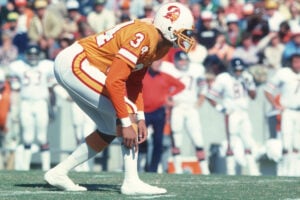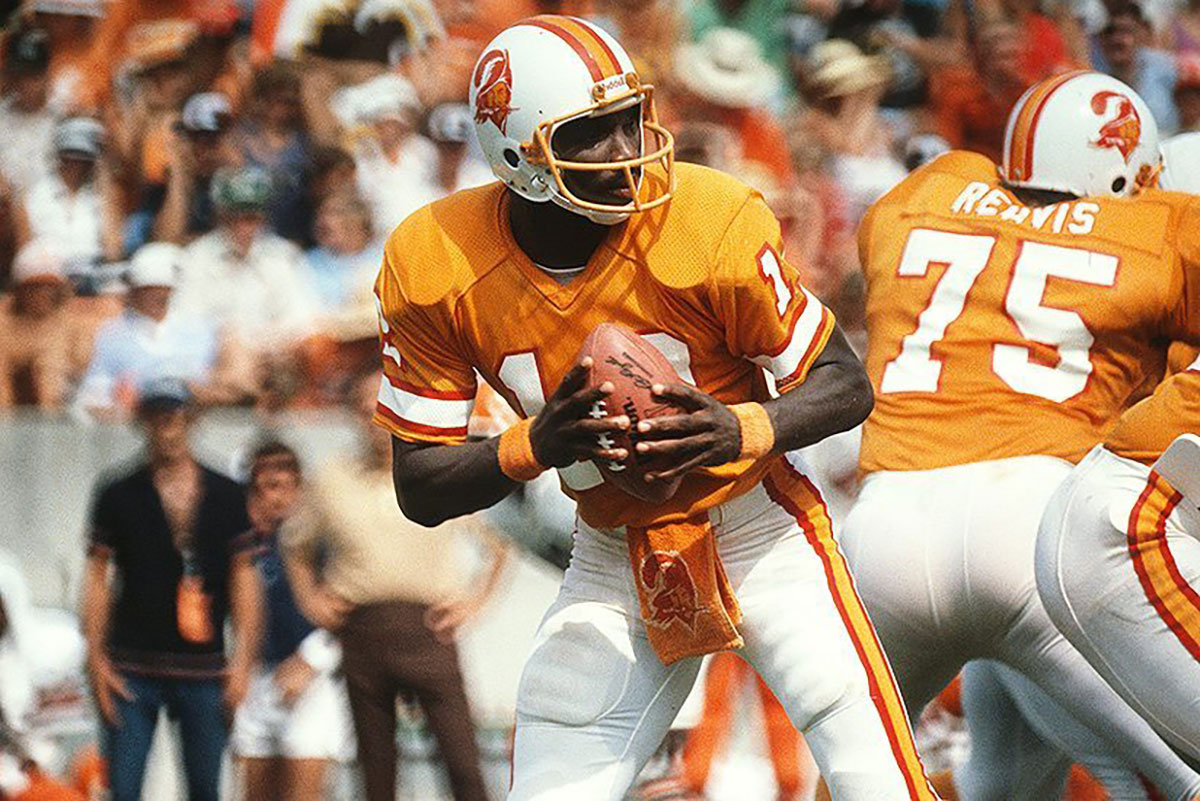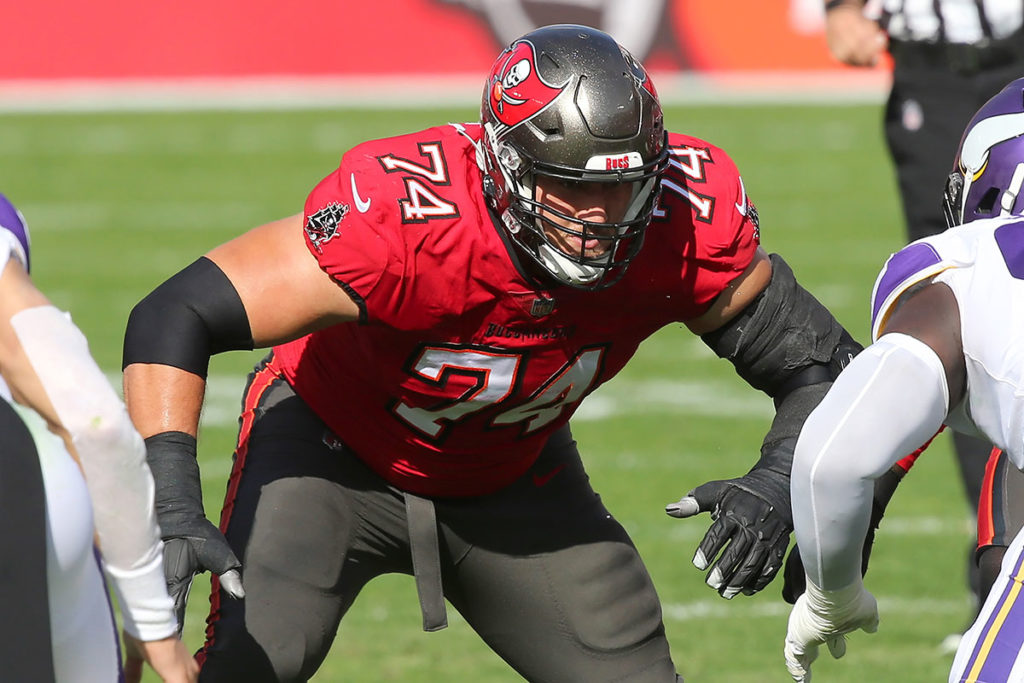Table of Contents
[adrotate group=”1″]
PewterReport.com has periodically published its Top 25 All-Time Greatest Bucs list, updating the rankings due to recent inductions into the Pro Football Hall of Fame and the Buccaneers Ring of Honor, in addition to the emergence of star players on Tampa Bay’s current roster. The last time we published this list was the summer of 2014 and it’s time the PewterReport.com staff re-examined the careers of the most elite Tampa Bay players. We’ve re-ranked the list and expanded it to the Top 30 All-Time Greatest Bucs.
In this 10-part series, PewterReport.com’s Scott Reynolds analyzes each Bucs legend and offers up commentary on some of the best players in Tampa Bay history. Some of the rankings – and omissions – will likely cause some controversy among the Bucs fan base.
Let us know what you think. Bucs fans and PewterReport.com readers are encouraged to leave their opinions in the article comments section, on the Pewter Report message boards and on Pewter Report’s Twitter page, or Pewter Report’s Facebook page.
In Friday’s installment, PewterReport.com introduces the All-Time Greatest Bucs ranked 28-30. Saturday’s installment will feature the Bucs ranked 25-27. PewterReport.com’s series concludes on Sunday, July, 11 with the Top 3 All-Time Greatest Bucs.
30. Bucs QB Doug Williams – 1978-1982
Williams was the team’s first-round draft pick out of Grambling in 1978. Drafting a Black quarterback in the first round was a trailblazing moment for the Bucs. And the talented QB paid almost immediate dividends, helping lead the Bucs to a division title and the 1979 NFC Championship Game. It would be the first of three playoff appearances that Williams would help Tampa Bay achieve.
Williams was the team’s leading passer with 12,648 yards when he left the Bucs in 1982 over a contract dispute. He’s now the fifth-leading passer in team history behind Trent Dilfer (12,969), Josh Freeman (13,534), Vinny Testaverde (14,820) and Jameis Winston (19,737). Williams ranks third in team history in touchdown passes (73) and fourth in interceptions (73).

QB Doug Williams –
photo By: Tampa Bay Buccaneers
After his NFL career concluded with a Super Bowl championship and Super Bowl MVP with the Washington Redskins, the Bucs hired him to serve in their pro scouting department from 2004-10. The organization recognized Williams’ leadership and accomplishments by inducting him into the Bucs Ring of Honor in 2015.
Reynolds’ Take: “Williams is not worthy of Top 25 consideration, but he makes the Top 30 due to his Bucs Ring of Honor status. What’s keeping Williams outside the Top 25 is that he had a career 47.4 percent completion percentage with the same amount of touchdowns as interceptions. Trent Dilfer made a Pro Bowl and had just as many playoff wins as Williams. And he threw for more yards and his completion percentage was six points higher. Jameis Winston Vinny Testaverde and Josh Freeman threw for more TDs and yards than Williams did, too. Neither Dilfer, Winston nor Testaverde nor Freeman is in the Top 30. Williams was a good quarterback in Tampa Bay, but not an elite one.”
29. Bucs CB Brian Kelly – 1998-2007
Kelly was a second-round selection in 1998 and was drafted because the Bucs were afraid that Ronde Barber, who was a third-round pick the year before, might be a bust. Like Barber, Kelly was slow to develop, recording just one interception in each of his first three seasons in Tampa Bay.
In 1999, his second year in the league, Kelly had great coverage on Rams receiver Ricky Proehl, but still allowed St. Louis’ only touchdown in the NFC Championship Game. That drew criticism from Bucs fans as Tampa Bay lost 11-6, and prompted talks of Kelly being a bust.
Kelly’s breakout season came at the right time in 2002 when he posted a career-high eight picks, which led the NFC that season. Kelly benefitted from playing opposite Barber and being targeted more often. He made QBs pay as he would go on to record 11 more interceptions from 2003-07. Kelly finished his Bucs career with 427 tackles, 22 interceptions, 118 passes defensed, 3.5 sacks and one defensive TD.
Reynolds’ Take: “Kelly was one of the toughest Bucs defensive backs of all-time. He was physical in jamming and re-routing receivers at the line of scrimmage, as well as a physical tackler. Kelly took a while to develop, but his breakthrough season came in 2002 with eight interceptions and a career-high 23 pass breakups and he was solid ever since. The Bucs might not make it to the Super Bowl without Kelly’s fantastic 2002 season. He and Barber were one of the best cornerback tandems in the NFL during the early 2000s.”
28. Bucs S Cedric Brown– 1976-1984
Brown was a 12th-round draft selection by Oakland in 1976, but wound up in Tampa Bay where he played in one game during his rookie season. He took over as the team’s starting free safety in 1977 and shined, recording two interceptions, a forced fumble and a fumble recovery. Brown wound up starting 95 games for the Bucs before injuries hampered his career the last two seasons.
Brown had a knack for making big plays, and recorded 29 interceptions during his nine-year career in Tampa Bay. That was a Bucs career record until Donnie Abraham broke it with 31 INTs in 2001.

Former Bucs FS Cedric Brown – Photo courtesy of the Buccaneers
The 6-foot-2, 200-pound safety set a single-season Bucs record with six interceptions in 1978, and then beat it years later in 1981 with nine interceptions, including two pick-sixes. That record stood until Ronde Barber broke it with 10 interceptions in 2001. Brown finished his career with 551 tackles, 54 pass breakups and three defensive scores to go along with his 29 interceptions.
Reynolds’ Take: “The Bucs have had many stellar defensive backs in the history of the franchise. Barber, the Bucs’ all-time leading interceptor and Hall of Fame safety John Lynch are atop the list. But Brown was the first dominant defensive back in Tampa Bay history, teaming with cornerback Mike Washington and strong safety Mark Cotney to give the Bucs secondary some real star power. Brown could do it all – cover, tackle and score. He was Tampa Bay’s first play-making safety – and one of the best.”




